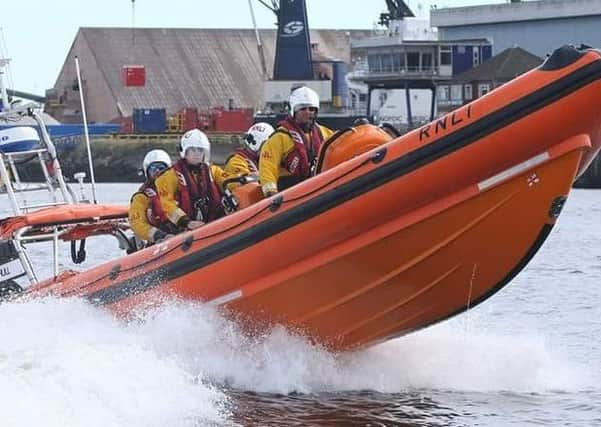Lifeboat chiefs' advice on how to survive falling into freezing sea


The RNLI is spearheading the national Respect the Water campaign, which highlights the dangers faced by people visiting the coast during the summer.
New research found that over half of people in the North of England would try to swim hard if they suddenly fell into the sea, which can quickly lead to drowning.


Advertisement
Hide AdAdvertisement
Hide AdThe charity says the best advice is to try to stay calm and float.
It comes after 27 people lost their lives at the coast in the north last year. Almost half did not intend to enter the water in the first place.
In Hartlepool, Lee Renney, 22, tragically died after he was pulled overboard while fishing half a mile off the Heugh Pier.
And last month, a man and boy out fishing were saved from drowning when their boat overturned off the Headland.


Advertisement
Hide AdAdvertisement
Hide AdProfessor Mike Tipton, from the University of Portsmouth, said: “We often rely on our instincts but our instinctive response to sudden immersion in cold water – gasping, thrashing and swimming hard – is potentially a killer.
“Although it’s counter-intuitive, the best immediate course of action in that situation is to fight your instinct and try to float or rest, just for a short time.
“Floating for this short time will let you regain control of your breathing and your survival chances will greatly increase.”
Darren Lewis, RNLI lifesaving delivery manager in the north, added: “The simple advice we are sharing with our Respect the Water campaign could be the difference between life and death and we very much hope people will take notice and practice floating the next time they are in a pool – it could save their lives.
“People will be flocking to the coast this weekend if the weather forecast is to be believed, and we want people to have a safe and enjoyable time at the seaside.”